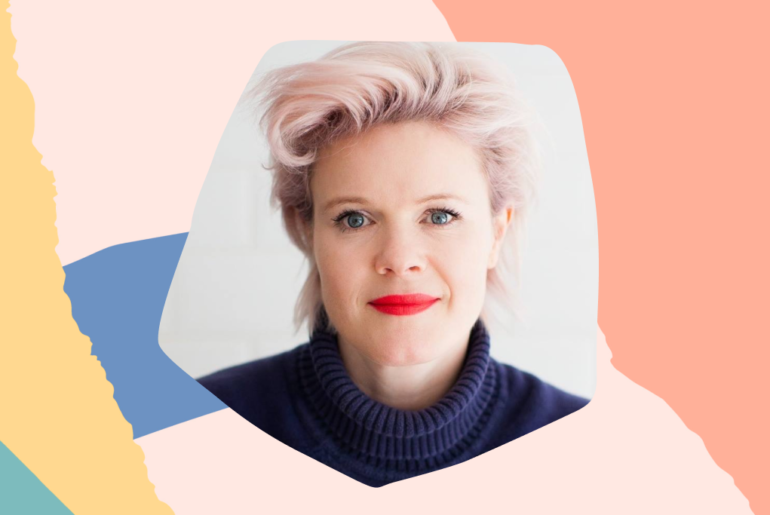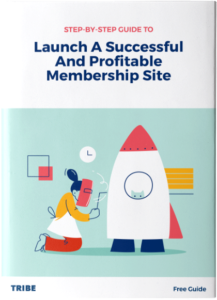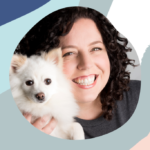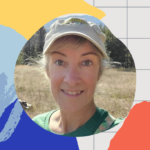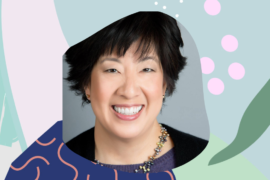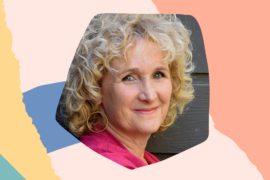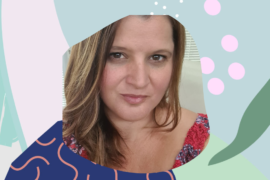Rachel Davis grew up playing the piano, writing songs, and loving music, but was steered away from pursuing a career in it. She spent 20 years in corporate sales, advertising, and online marketing to great success, but found herself anxious and unhappy in her work. She walked away from the corporate world to teach music classes that went beyond the noisy offerings full of exhausted parents she took her young children to. However, she soon discovered that she needed to take her business online to protect her mental health.
As she made major changes in her life, she wrote two albums, led a TED Talk, created an online program, and built a musical membership for children. Now, at Raise a Tiger, Rachel helps children use music to access their genius, gifts, flow, and confidence.
Today, Rachel joins the podcast to share how she came back from feeling like half a person, the unique teaching and healing power of music, and how her membership business has changed her and her family’s life for the better.
Key Takeaways
- Why Rachel decided to take her in-person music sessions for children online.
- How Rachel’s goals became more ambitious as she reconnected with her gifts and discovered the power of her work.
- The powerful ripple effect created by Rachel’s membership business.
- Why Rachel originally designed her material as a course – and why it turned out to be uniquely suited for the membership model.
Free Give
FREE Guide – Launch & Grow a Profitable Membership Site
Ready to reclaim your time and attract more monthly paying customers? Our step-by-step guide will show you how to build a membership site that turns your passion into recurring profit. Click here to download!
Memorable Quote
- “When you do the thing that lights you up, when you follow the joy, it leads to connections. The universe conspires.”– Rachel Davis
- “If you’re familiar with the law of attraction, you know that if things are going well, things continue to go well.”– Rachel Davis
Episode Resources
Transcript
Read The Transcript
[INTERVIEW]
Shelli Varela: Rachel Davis, welcome to the It’s a TRIBE Thing Podcast. How are you?
Rachel Davis: I am very well. Thank you very much, Shelli, and thank you so much for having me. This is awesome.
Shelli Varela: It’s our absolute pleasure. I am excited to dive in with you and your story. I love all of the things you’re doing and how you’re doing it and it’s big, big, big work. Your membership site is called Raise a Tiger and you deal with music and you deal with children and music and help them access their genius, their gifts, their flow, their confidence, and we’re going to get into and unpack all of that. But before we do, I’m always interested in hearing our guests’ backstory. So, who are you starting from the very beginning before you were this membership site owner? How did you get to be that person?
Rachel Davis: Okay. So, if we’re going to go right to the beginning, which I guess we should, four years old, I just wanted to play the piano. That’s all I knew. We had a piano in the house. My dad was a really keen musician, which was amazing. It was where I spent all my time and I begged for lessons and I started lessons and I played piano for all of my childhood. I wrote my first song at 15. And I did some band stuff and writing songs but it kind of wasn’t really considered a job. So, unfortunately and sadly, I was kind of steered away from music as a life and a career with the best of intentions.
Shelli Varela: Let me pause you just for one second because I think this is going to be key later. So, how did you feel when you were in the music like you would be in the music and you would feel it and you would flow with it and then you would step out with it. What was the gift that you acknowledged that it was giving you in your life, even at such a young age at that time?
Rachel Davis: If knowing now what I know now, I know that it was connected to my purpose. I knew that it lit me up. I could sit at the piano and I could be lost. And I would be transported in time and things would become timeless and I could just sit there and I could feel things and then put them onto my piano. And I don’t know, it’s just anybody who has an affinity with music, you know what music can do. It evokes all kinds of emotions. It affects every single cell in our body. And it was my thing. It was the thing. It was where I would go when I was sad. It was where I would go when I was happy. It was where I could express myself and feel really true to myself, like a true voice, if you like. And so, for me, it was like a best friend. It was like a purpose. It was like I was here for that and I knew that at four but I didn’t really know that I knew that at four, if you know what I mean.
Shelli Varela: Sure.
Rachel Davis: It’s only hindsight that we tend to appreciate these things.
Shelli Varela: So, that was sort of trained out of you because you articulated it. That was not considered “a job.”
Rachel Davis: Yeah. Well, back in that time, music was obviously it could be like quite not a career if you like. So, I was encouraged to use my mind for other things. I was quite academic and so I’ve kind of sort of encouraged down that road, but unfortunately, it just meant that when I did go through college and got accepted for university, I didn’t go. I remember like, much to my parents disgust going, you know what, I went and sold kitchens in my first summer before going to university and I made like a shitload of cash. And I was like, “I’m not going to university. I’m going to go and earn some money. This is amazing.” I ended up selling kitchens and then selling the internet when nobody has heard of the internet and websites and things and I’ve moved into a sales career, which I did. I was rather good at, I think, for about 20 years. I was corporate sales and selling advertising and all the online stuff.
But then, of course, what happened is, ultimately, I had children. And as we know, when we have children, our life changes beyond recognition. And suddenly the things that became important and priorities were not important anymore and I just felt this desperate need to not only show my children how to live a good life, which was part of it but I also had lost a huge part of myself. I had found myself in a very long-term situation that was not serving myself or my children, and I had really basically become half a person. I struggled with memory. I literally could meet two or three people in a week several times and not remember meeting them. I couldn’t make decisions. I had anxiety. I was trapped in my head. And I was just half a person and it was the decision to start music sessions for under five, which I had never done before in my life. I just knew I needed to do something that would stop me having to go back into the corporate world. So, at the time, I had a two-year-old and a six-month-old and I was living in this awful situation. And I went to this music session one day with my children like you do. You know, if you’ve got children, you will know, right?
Shelli Varela: Just take them.
Rachel Davis: You take them anywhere, get anywhere where they can’t like rub old biscuits on my sofa or whatever. You just go out where you like you can stop rocking and actually speak to an adult. And I just remember sitting in this music session and it was awful. So, if anybody’s listening and they haven’t been to a children’s music session, you have to imagine there are maybe about 20, 25 knackered-looking parents where they probably have to sit down and talk, they haven’t brushed their hair, they definitely haven’t brushed their teeth. They might have covered it up with some lipstick but generally speaking, they’re trying to look like they’re holding it together. They haven’t slept in weeks and they are living on coffee and leftover fish fingers off the floor. That is what is happening, right? Until you turn up at this music session and there’s all these like people like manically waving maracas and xylophone, doing all the things. And you’re singing Twinkle, Twinkle Little Star, and it’s amazing but I just remember sitting there going, “I could do better than this.”
And then that was the moment that was like, “Oh, I could do better than this.” And so, the very next day, I started looking at [holes 6:26] and I printed off some leaflets. I did like a little PowerPoint-like leaflet and I started this business called Tiny Tempo, which was just running music sessions for under-fives and I was scared out of my wits because I just never done anything like that before but it was so glorious, Shelli. I cannot begin to tell you. Sharing your passion with small people is just glorious and seeing their reactions. They don’t dress things up, kids, and you can tell straight away if they like something or not liking, you can change it. And it was amazing but I learned these amazing skills. And then one of the things that I learned in this music session was that because I get really bored with singing Twinkle, Twinkle Little Star, and all these, I started dropping stuff in from my childhood, right?
So, we might do the Conga or I do something by Queen or we jump in like The Lion Sleeps Tonight or just anything to kind of break up the monotony of singing kid stuff. But what happened when I did that was that all of the parents in the room like the whole energy would change. Literally, suddenly the parents are having actual fun and that was a real pivotal moment in my story. And then as the musicians evolved over the next few years, I found myself working with a lady on my emotions. And I went through some reflexology treatments and I did some things and something shifted in me and I don’t know what it was. No, I do know what it was. That’s a lie. I did know what it was. My brother had passed away very suddenly and it made me really question how are we showing up, how I wanted to live my life, what I wanted to do. And I was just teetering on the edge of leaving my situation with my children. And then my dad also passed away, suddenly, just two days of me asking him for some help.
And this combination of events led me to pretty much a complete life breakdown. I found myself as a full-time single parent with two children under the age of three with post-traumatic stress disorder, and lots of emotional and mental stuff going on. And it was the work that I chose to do on myself, the yoga, the meditation, the choosing to connect with myself, and that moment of choosing to heal myself in order to be able to help my children in the best way that I possibly could was one of the defining moments that linked in with my music. So, at the time, I was working with a lady who was doing something called the emotion code, which if anybody isn’t aware of that, it’s a fantastic system that explains emotions is energy and works on trapped emotions in your body. And I shifted all this stuff and I remember after my first session, I must have cried for about three hours. And after my session, I looked around at my house and I looked around at my business, and I was like, “What am I doing here?” Everything shifted. And I knew also that I wanted to take my music sessions online because I wanted to escape the physical location that I was in because the physical location I was in, the person that had been causing problems for me was still within 200 yards of my property and still continue to make my life difficult.
Shelli Varela: And also now that you know about emotions and energy and how it’s trapped and how that was actually affecting you, super wise and insightful for you to go, “How can I recreate this in a way that allows me to use my music that is my home in a different way that serves my life a little bit better?”
Rachel Davis: Totally. And there was this one little pivotal moment and it came with my eldest child at the time was really struggling to be present and he was struggling to follow simple instructions because of our experiences. And one day, any parent who’s got young children, getting your children’s shoes on in the morning can be a sticky moment anyway, right? So, I was standing there. I must have asked my child to put shoes on about 15 times and I was literally at them. I was kind of starting to lose my shit a little bit. And then the song came on the radio and he just started singing it. And so, from that, I was like, “Ooh, I found a way in.” So, I started originally with writing songs to get them to do stuff to help me out.
Shelli Varela: That’s brilliant.
Rachel Davis: To change the blank moments [inaudible 11:00]. So, like get to shoes and put on in five seconds and some to brush their teeth, and a song to like to drop them off at nursery and stuff. But it was also kind of edged up with my own little style. So, there’s a few little house tracks and rock tracks and things in there because we know that I don’t want to sing Twinkle, Twinkle all the time, right? So, as that was starting to happen, I was starting to do more and more stuff on my mindset and I was retraining in NLP and hypnotherapy. And I started to learn about belief systems, and how the belief systems that a child forms in the first seven years of life is what we’ve been used to run the rest of our lives on a 95% like autopilot.
Shelli Varela: Then you realized the actual power of what you were doing.
Rachel Davis: Completely. And so, I wrote this song called I Am Capable Of Anything and I didn’t think my children were listening but then we went to the skateboard park one day and after I’ve been writing this song [inaudible 12:01], my son dropped in off like a 12-foot concrete bowl. He was six.
Shelli Varela: Six, okay.
Rachel Davis: Six years old. He drops in off a concrete bowl and I was like, “What are you doing?” And he said, “It’s just like you said in your song, mommy. I just had to believe that I could do it. And I did it.” And so, all of these things came together and so within two years, I went from working in a village hall, singing Wheels on the Bus to writing two albums, doing my TED Talk, creating an online program, and the musical membership that was going to be just Wheels on the Bus Online turned into something so bigger, and so much more pleasurable for me. And, yeah, and that’s how Lala Tigers and Raise a Tiger program was born.
Shelli Varela: So, talk about how that transitioned and what your membership site is now and how it’s different from that. Like, who do you serve and how do you serve them? I know in our pre-chat you were telling me about three sort of main areas that music is used to impact children in that precognitive commitment years or a span of zero to seven.
Rachel Davis: So, my work is very much aimed at children under seven, generally two to seven, because some of the songs they have jumping and things and actions, obviously, so that they impact the belief system. It’s based very simply on three main key points. So, the first one is the attachment. The attachment and the connection that you have with your child is obviously the biggest connection you were ever like it’s the best protection you’re ever going to give your child anyway. But as, actually, research shows that it’s the increased attachment and the fun and the play, and the energy of love if you like if you want to go there with the woo, it actually supercharges the learning that’s going into it. Making it as much fun for the parent, it’s hugely important for me because if the parent doesn’t want to be involved, then I can’t reach the minds of the children and want them to be involved. And their love and their play is what’s going to teach the child and they are the secret ingredient.
Shelli Varela: Yeah. Because they can’t be attached to somebody who’s disconnected is what I’m hearing.
Rachel Davis: Correct.
Shelli Varela: Got you.
Rachel Davis: So, a lot of the music is about encouraging the parent to be in touch with themselves. And it’s also teaching them to be present and to understand their thoughts and their feelings. And that kind of that connection, that connection with self and connection with each other is vital for the working of the program. The second thing is, of course, the power of music. Now, everybody knows that music is huge but music does more than just teach children because there’s so much research to show that music activates our whole brain. It lights our whole brain up, right? It evokes emotions, it evokes feelings, it evokes memories, but one of the things that I really realized was that you don’t remember anything that your parents told you when you were three or four. And yet, if I asked you to maybe sing the alphabet song, which is a seriously complex piece of information for a three-year-old to grasp, not only do you remember the song, but you remember like you remember the tune, you remember all of the letters, there’s no context, and there’s no story and yet that child still remembers it and can recall it 40, 50, 60 years later. And that is the power of music for going straight into the unconscious mind and staying there like literally nothing else can. So, that’s the second premise.
And then the third premise is, of course, how a child’s belief systems are forming in the first seven years of life. Now, during the first seven years of life, your child is really creating a lens, a lens they’re absorbing absolutely everything and accepting it as fact. And therefore, the Raise a Tiger program is being super, super intentional about the messages and the words and the language that we use within the songs but also encouraging parents to use the correct language and focus children on positivity and reframe situations with music to enable them that as their belief systems are forming, we’re almost creating like a super program, if you like, to help them really understand their internal world, and then to be able to go on and to trust their inhibition and then tap the confidence and the self-belief to step through fear and make that happen.
Shelli Varela: Oh my gosh. What do you think the ripple effect of this program is going to be? Because on the outside, it would be super simple to say, “Oh, that’s amazing. Rachel Davis has this cool membership called Raise a Tiger and she uses music to dah, dah, dah, dah, dah.” That’s what you do on the surface. What do you think the ripple effects of what you actually do is?
Rachel Davis: I think it’s huge. Sometimes I try not to think about it but I think from the smallest thought of just thinking that I’ve transformed somebody’s morning and they can get out of the house and everybody leaves there feeling in a good mood because if you’re familiar with law of attraction, you know that if things are going well, things continue to go well, and you have that. Also, the increasing connection between a parent and a child is huge. If you can increase the parent self-connection even better because then that affects how they show up in their parenting. But my big vision is that we can impact a generation of humans so that they can be inner driven, and trust that inner voice, and can ultimately use their inhibition, tap into that, and really go on to change the world because quite frankly, we need that. We need that right now. We need inner-driven humans who trust that and have courage to make changes and do things in a different way and stand up for what they believe in. That’s the big vision.
Shelli Varela: Well, I love what you’re doing on so many levels, and it does connect to what I do and to what I believe and I’ve noticed that so many people have varying levels of self-loathing almost in some ways or even a lesser version of that where they think, in some cases, they’re not big enough, brave enough, smart enough, strong enough. And it’s like, they get lit up by an idea. It’s like, “Hey, wouldn’t it be amazing if I (insert idea here)? And then the next thing that happens immediately is the logic or the odds or what are the chances I could do that? Or who am I to do that? And I love that you are circumventing that as it’s getting preprogrammed and wired in a child’s mind, literally, will not only change the child’s life. And the reason I asked you the question about the ripple effect because what I believe the ripple effect of what you’re doing is allowing people to put their truth out into the world and the people’s truth, if more people could do that, it has the ability to not only heal themselves, heal other people, but also be an example of what that looks like for other people. I think that is the crux of violence and all of those things when you have that internal ability to love yourself, to see yourself in a certain way. So, I just want to like fully acknowledge the actual power of what you’re doing. I think it’s genius.
Rachel Davis: Thank you so very much. I really hope that it helps people. And just like that, when you talk about that stepping through that fear and the thinking mind, you get this amazing inspiration, and then that thinking mind kicks in. That has been probably my biggest hurdle is like overcoming that and trusting in that because our thinking mind gets in the way.
Shelli Varela: I love though that you were in this unique position to be able to piece it all together. Because when we started the talk at the top of this, the top of this chat, the reason I asked you why you felt how you felt when you were sitting at that piano bench was like it was almost like it grew roots for you. And it became like a home zone for you. So, even though you went through life and experienced some challenges, that was always the thing you could go back to and to know as an adult even though you don’t know how to do it, you haven’t had it all figured out, but to know what that felt like for you and how you could provide that for other kids and how that would change their lives is incredible.
Rachel Davis: Thank you. But I genuinely think that everybody is here I think we’re born with a purpose and I think we’re born with an affinity. When people talk about following their joy, following the thing that lights them up, I think that is absolutely crucial to living. Even if it’s not that thing, I genuinely think it’s the thing that will lead you to the purpose. I don’t know, well, table cooking is my thing. How’s that going to happen? It was like, well, just go cook then spend more time cooking creatively. And even cooking isn’t the thing, it might be the thing that leads you to that. Maybe you’re going to be cooking something that is going to, I don’t know, you might discover a new recipe or that could be the purpose. It’s somehow the joy is definitely linked to it and I don’t think we understand that as children. We just know what we like and then we’re trained out of it. We’re programmed out of it.
Shelli Varela: Totally. And for the adults who have been trained out of it, like to your point, you can’t steer a parked car. You might not be able to see the thing from where you’re sitting but you also might never get to the thing unless you put that thing in drive and press the gas and just start going who knows where,
Rachel Davis: Exactly right. You know, when you do the thing that lights you up, when you follow the joy, it leads to connections. The universe conspires. It leads to connections and experiences and things that you would never have dreamed possible, but you have to take steps towards it. And once you’re doing it, then the inspiration flows because then you’re in the flow. When you’re in that moment doing the thing that you love, that is when you’re most aligned with your purpose and your source and your guts when I believe you’re most open for inspiration and therefore more able to receive. Go get the penny drops because you’re in the zone, right?
Shelli Varela: Absolutely. So, how has this membership site changed your life? And how did you overcome the biggest limiting belief you originally had when starting it?
Rachel Davis: Okay. How has it changed my life? It’s taught me a lot about tech, seriously. What I love about it is that two-and-a-half years ago, I was working in a village hall and I was really, really struggling. I didn’t know what my movement was and now I’m in a position where I can work from anywhere in the world. I have pulled my children out of school because I have that option to do so and we homeschool and I have the flexibility to work from anywhere. And it has also opened my eyes to how many people that we can reach with this because, originally, I’d written this as a course and there is still a course element. I did the course membership. Is it a course? Is it a membership thing that everyone does? And originally it was a course then I made it a membership and then I pulled the course out of the membership. But to be able to impact as many people as possible, that’s the impact that I want to make. But then also to have a relatively just like a stable recurring income is huge as an online business owner.
Shelli Varela: What is the biggest thing that you thought was going to be a problem but you were able to overcome when you were starting your membership site?
Rachel Davis: That I couldn’t sing. That’s not good when you’re planning to run a musical site, is it? I think my biggest challenge was the tech because I had never run anything online. While I’d been tech-savvy with doing marketing and things, I didn’t really know where to start. And one of the biggest hurdles, particularly doing music, is that what I found was I couldn’t just sit at my piano and sing into a Facebook group. If you’re doing music, it has to sound good so I had to then go, “Okay.” So, then I started going into studios and recording things, and then I had to learn like broadcasting software and filming. But I just truly believe that everything is learnable. And I just felt that every single obstacle I came upon, I was like, “Okay, then I’m just going to have to learn how to do this then,” and I cracked on with that. But yeah, tech, sound, and showing up online on screen was a big issue for me, in the beginning.
Shelli Varela: And so, last question, what is the biggest gift that you got that was unexpected when you started?
Rachel Davis: The people that I’ve met. The people that I’ve met and the opportunities and experiences that I have had since starting this journey, and I’m only at the beginning of what I intend to do, has been phenomenal. The people that have come out to support me, the people that believed in me, and the people that have… It’s just the right people at the right time have just shown up and it just shows you that sometimes you just have to take steps without not knowing any of the answers and trust that you will be supported because I have been and that for me I have now people that I consider my friends. I have a whole different landscape of worlds than what I had three years ago. And for that, I will always be incredibly grateful.
Shelli Varela: Well, I’m super grateful for you and for your time and for what you’re doing in the world. If people are looking for you online, where’s the best place they can find you?
Rachel Davis: LalaTigers.com.
Shelli Varela: Amazing. And we’ll put that in the show notes. Rachel Davis, thank you so much for everything you’re doing. Your work is profound and healing, and we appreciate you.
Rachel Davis: Thank you so very much for having me.
[END]
To learn more and get access to all episodes, visit our podcast page!
